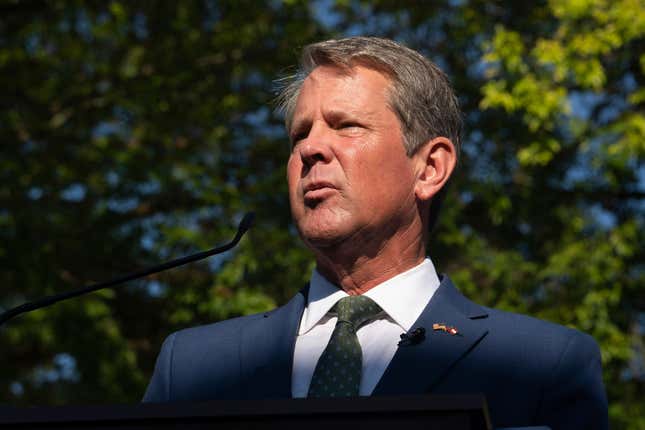
Georgia Gov. Brian Kemp, the Republican incumbent trying to defeat Democrat Stacey Abrams and hold onto power in a critical swing state, lost his court battle to avoid having to testify to a special purpose grand jury about former President Donald Trump’s efforts to hijack the state’s 2020 election results.
Today’s ruling from Fulton County Superior Court Judge Robert McBurney slapped down a motion by Kemp’s attorneys to quash a subpoena from Fulton County District Attorney Fani Willis, who is one of several Black prosecutors at the state level investigating either Trump’s behavior during the last presidential election, or, in the cases of Manhattan District Attorney Alvin Bragg Jr. and New York Attorney General Letitia James, looking into whether Trump committed fraud in his real estate development business.
McBurney did give Kemp a minor reprieve, ruling that while Kemp will have to testify, he can avoid doing so until after the Nov. 8 general election, meaning whatever his testimony reveals won’t have a direct impact on voters’ decisions in the race. But it also highlights a political challenge for Kemp at a time when expectations of a Republican wave in November’s elections have been blunted by enthusiasm from women for Democrats in the wake of a conservative Supreme Court striking down the constitutional right to an abortion two months ago.
Kemp has a slight lead in polls over Abrams, but has been significantly outraised by Abrams, who has also built a strong get-out-the-vote apparatus. The incumbent’s challenge is that he’s never been an enthusiastic Trump supporter (Trump once said that Abrams would make a better governor) in a state where the Republican base overwhelmingly supports the embattled ex-president. Kemp’s attempt to hold onto voters who support Trump might have been complicated by any unfavorable testimony had he been forced to take the stand before the election.
But at the same time, McBurney’s ruling could also serve as a reminder to independents and more moderate Republicans who are repulsed by Trump’s influence and his attempt to interfere in the election that Kemp shares the same party affiliation. Trump, after all, remains active in Georgia politics even in the midst of Willis’ investigation; he’s the biggest supporter of Herschel Walker, the Republican nominee for the U.S. Senate seat currently held by Democrat incumbent Raphael Warnock.

